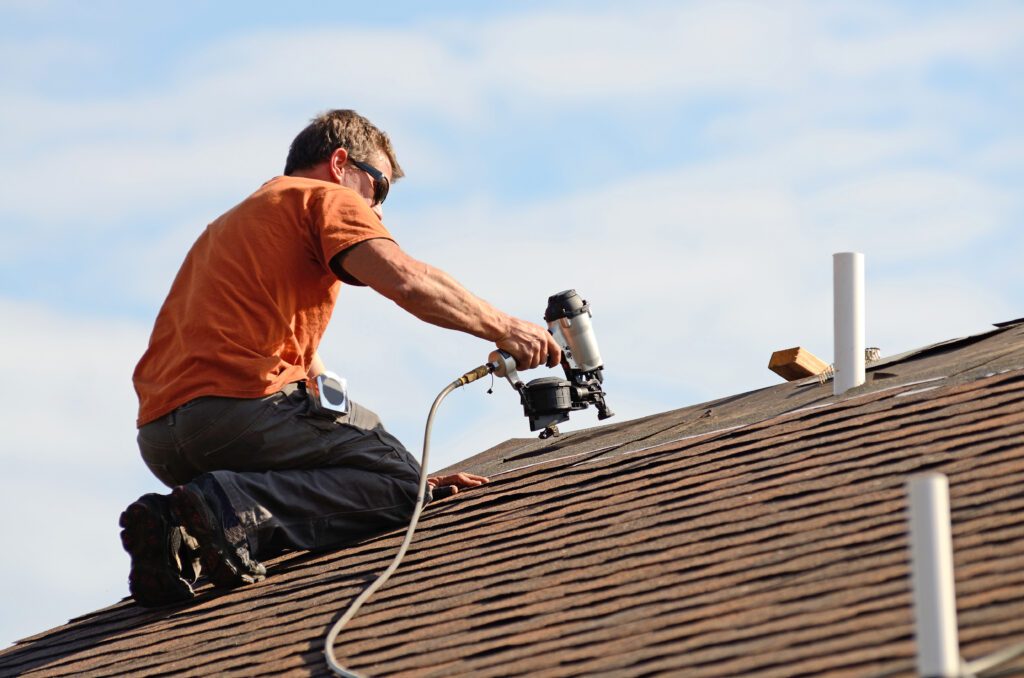As a business owner or property manager, a professional commercial roof installation is one of the most significant investments you can make in your property. Whether you’re building a new property or replacing an old roof, a smooth installation process can contribute significantly to the durability and longevity of your building.
If you’re considering a new roof for your property, this guide is for you. Today, we’ll review everything you need to know before starting your project so that you can prepare with confidence.
Preparation
Before you begin any commercial roof installation project, conduct a thorough inspection of the existing roof. This inspection will help you identify any issues that may affect the installation process, such as leaks or structural damage.
If you are able to identify any potential problems with your existing roof before beginning your project, communicate them to the roofing company. The installer can prepare to bring extra crew members and/or materials with them to address these needs rather than having to stall the project to acquire more materials before they can continue.
Apart from the inspection, it’s also important to plan for inclement weather, which can delay the project. Schedule the installation during the dry season when there is less likelihood of rain, hail, or snow.
You’ll also want to prepare the site for installation by removing any debris or obstacles that could impede the process. Clearing the work area of debris, parking, and any other movable items can help ensure that the roofing crew has ample space to work and that the process runs smoothly.
Choosing the Right Materials
The type of roofing materials you choose will depend on a variety of factors, including the building’s location, climate, and intended use. A commercial roof needs to withstand harsh weather conditions, constant exposure to the sun, and frequent foot traffic.
Some types of roofing materials to consider for your property can include:
Single-Ply Roofing
Single-ply roofing is made up of a single layer of roofing material, typically composed of synthetic materials like PVC, TPO, or EPDM. Single-ply roofing is also highly resistant to damage from UV rays, weathering, and chemicals, making it an ideal choice for industrial and commercial buildings.
Built-Up Roofing
Built-up roofing (BUR), also sometimes known as tar roofing, is composed of layers of asphalt or tar and gravel, making it one of the most traditional roofing materials for commercial applications. BUR roofing is highly durable and long-lasting, making it a popular choice for flat roofs. However, it can be more expensive than other roofing materials due to its installation complexity.
Modified Bitumen
Modified bitumen roofing is a category of asphalt roofing that has been modified with rubber or plastic polymers to enhance its performance. This type of roofing is highly durable and resistant to damage from weathering, UV rays, and chemicals, making it an excellent choice for commercial buildings that require a high level of protection. Modified bitumen roofing is also easy to install and repair, making it a cost-effective choice for commercial building owners.
Metal Roofing
Metal roofing is composed of steel, aluminum, or copper sheets that are corrugated or shaped into tiles. Metal roofing is highly durable, long-lasting, and requires minimal maintenance. Additionally, metal roofing can be painted to match the aesthetic of the building, making it a popular choice for commercial buildings with modern or industrial designs.
When choosing the right material, evaluate the longevity and durability of the materials you choose. Look for warranties and maintenance options, as this will help you extend the lifespan of the roof and prevent potential costly repairs down the road.
Hiring the Right Contractor
Choosing the right contractor for your commercial roof installation project is critical. A licensed and experienced contractor will guarantee quality work, adhere to local codes, and follow safety procedures, ensuring the safety of everyone involved in the project. Before hiring a contractor, make sure to check for licenses, insurance, and certifications, as this will ensure that the contractor is qualified and able to perform the work.
You should also read reviews and ask for references from previous customers, as this will give you a sense of the contractor’s reputation and track record. A reputable contractor should be willing to provide references from previous clients and even provide pictures of their past projects.
Finally, it’s important to interview potential contractors to get a sense of their communication style and to make sure you feel comfortable working with them. During a project, depending on its scope and complexity, you may need to work with them throughout various stages in the process, so having a compatible communication style can contribute to a more successful outcome.
Communication
Clear communication is a key component to a smooth commercial roof installation. During the installation process, regular check-ins with the project manager and the contractor can help ensure that everyone is working together effectively, and the project is progressing as planned.
An experienced and reputable contractor will be responsive to your messages and keep you informed throughout the project, giving you regular updates on the progress of the installation. As you’re reviewing potential contractors to work with, read their testimonials and reviews and pay close attention to mentions of their communication styles if mentioned by past customers.
Project Management
Assigning a project manager to oversee the installation process can ensure that the project stays on track and that any issues are addressed quickly. The project manager should be responsible for coordinating with the installation team, ensuring that the work area is clear and that the installation process runs smoothly.
During the installation process, the project manager should also monitor the progress of the project and address any issues as they arise. This includes identifying potential challenges, such as inclement weather, and making the necessary adjustments to avoid any obstacles that could impede the completion of the project.
In addition, the project manager should also be responsible for ensuring that safety protocols are in place and that the installation team has the necessary safety equipment. Regular safety checks and safety training can help prevent accidents and injuries during the installation process.
Post-Installation Maintenance
After installation, plan to schedule regular inspections and maintenance to identify any potential issues with the roof early on. For instance, roof leaks can lead to water damage, mold growth, and other problems that can be expensive to repair. By identifying and addressing these issues proactively, you can prevent more significant damage and extend the life of your roof.
Keeping your property’s roof clean and clear of debris is also critical to maintaining its integrity. Over time, debris such as leaves, branches, and dirt can accumulate on the roof, leading to clogs and other problems that can affect its performance. Regular upkeep can help prevent these issues and ensure that the roof continues to provide excellent insulation and energy efficiency.
Get Commercial Roof Installation in Jacksonville
At HW Roofing, we proudly serve the St. Augustine and Jacksonville, FL area as a commercial roof installation and maintenance partner for local businesses. If you are planning a new construction or want to revitalize your existing roof, schedule a free inspection today.


